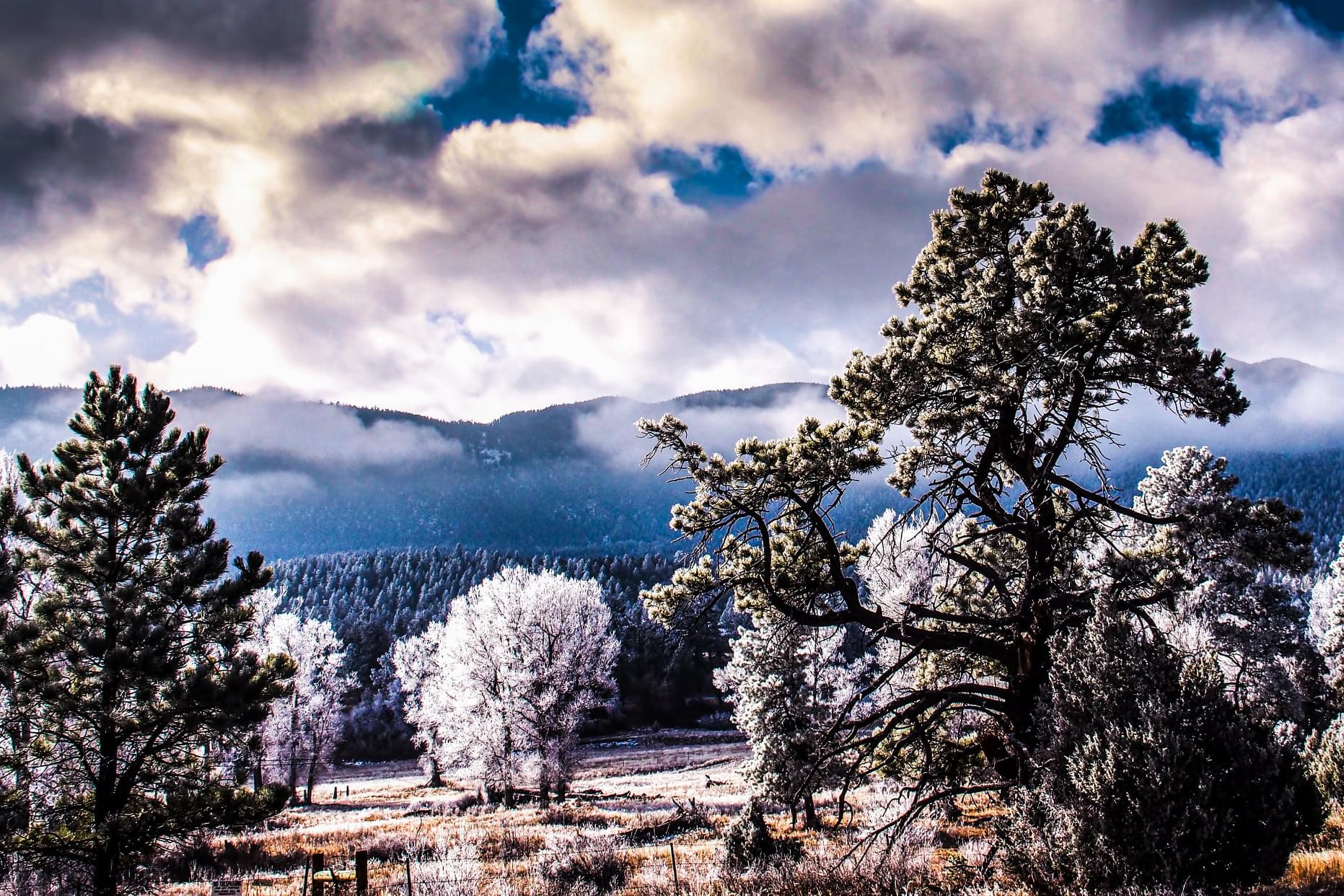The Daily Escape:

After an ice storm, Taos NM – January 2022 photo by Bob Benson
“Freedom without consequences is a myth. Our actions always have consequences. The question is: who will bear them?” – Seth Godin
The year 1968 was pivotal. In addition to the assassination of Martin Luther King, Jr., it brought the Tet Offensive, student protests across the country, the assassination of Robert F. Kennedy, the student and police riots at the Chicago Democratic Convention, Black Power salutes at the Olympics, and the triumph of Richard Nixon’s Southern strategy.
MLK, along with others in our churches and a few courageous politicians, came together to support the Big Idea that Separate was not Equal. MLK gave a voice to that Big Idea. His presence, power and persuasiveness drove our political process to an outcome in the Civil Rights Act of 1964 that was completely unthinkable in 1954 when Brown vs. Board of Education was decided by the Supreme Court.
Wrongo participated in the Civil Rights movement from 1958 to 1962. He left active participation in the movement believing good ideas and a morally sound position would change our politics. He was wrong.
Legislation has recently passed in eight states that will restrict what students can be taught about our past. This is an effort to segregate certain subjects from our common history. These Republican states want to diminish or exclude the stories that speak to slavery, to Jim Crow, and to other moments in which America’s deepest shortcomings around the subject of race in America are told.
Wrongo wishes that this represented a minority of the Republican Party. But when Biden spoke in Atlanta, he said:
“I ask every elected official in America: How do you want to be remembered? Do you want to be on the side of Dr. King or George Wallace? Do you want to be on the side of John Lewis or Bull Connor? Do you want to be on the side of Abraham Lincoln or Jefferson Davis?”
Dr. King had said that stripping the right to vote from Black southerners laid the groundwork for laws that further disadvantaged poor people, even across racial lines. Then as now, Southern legislatures justified limiting the franchise to vote with specious claims about electoral shenanigans.
Biden’s words set Republican teeth on edge. Sen. Mitch McConnell (R-KY) said that Biden:
“…called millions of Americans his domestic enemies…and that if you disagree with him, you’re George Wallace….If you don’t pass the laws he wants, you’re Bull Connor, and if you oppose giving Democrats untrammeled, one-party control of the country, well you’re Jefferson Davis.”
Fox News contributor Ari Fleischer tweeted:
“Now he says disagreeing w/him on voting laws means you’re a segregationist, like George Wallace or Bull Connor. How low can he go?”
The linkage between trying not to teach America’s true history with the censorious outrage shown by Republicans over Biden’s comments is clear. Biden said America needed to be on the side of voting rights.
That was Dr. King’s great struggle, and his great success.
But Republicans want to whitewash that history. They also condemn Biden’s efforts to tie today back to our undemocratic past. As Jelani Cobb says this week in the New Yorker:
“This holiday honoring Martin Luther King, Jr., sees a nation embroiled in conflicts that would have looked numbingly familiar to him. As school curricula and online discourse threaten to narrow our understanding of both past and future, it’s more important than ever to take stock of our history and its consequences….
Time to wake up America! We are docile sheep heading back to the barn, the place where we will be shorn of our democracy, just as surely as wool is shorn from the sheep. The smoking guns are all around us, and yet, we seem hopelessly divided about what we should do to change course.
To help you wake up, let’s listen to Wrongo’s favorite MLK song, “Southern” by OMD from their 1986 album “The Pacific Age“. On April 3, 1968, in Memphis, King delivered his last speech, which we remember as his “I’ve been to the mountaintop” speech. He was assassinated the next day. OMD samples some of the content of that speech in “Southern”:
Although everyone knows the “I’ve been to the mountaintop” part of the speech, Wrongo thinks our focus should be on the following:
I want young men and young women, who are not alive today
But who will come into this world, with new privileges
And new opportunities
I want them to know and see that these new privileges and opportunities
Did not come without somebody suffering and sacrificing
For freedom is never given to anybody
Why focus on that part of the speech? One day down the road, and it will not be long, young people will have forgotten what MLK meant to America, or how whatever remains of their civil rights, came to be.
Or, how the 13th Amendment ending slavery came about, and why, 100 years later in 1965, the Voting Rights Act was passed, or how 48 years later, in June, 2013, the Roberts Court eviscerated it.
So, take the time to teach a child about why MLK is so important.
